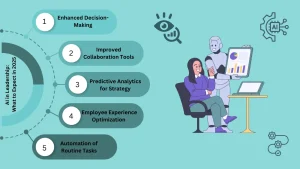Leadership principles serve as the foundation for effective management and team cohesion in any organization. This article delves into essential leadership principles that embody strong leadership, examining different styles and qualities that contribute to successful leadership practices. By understanding these core values, leaders can cultivate an environment conducive to productivity and innovation.
Core Leadership Principles
Leadership is fundamentally anchored in several core principles that form the bedrock of effective management. These include:
- Integrity – This serves as a critical cornerstone. It fosters trust and consistency in behaviors, allowing leaders to navigate challenges ethically. Leaders who exhibit honesty and strong moral principles foster trust within their teams. This trust cultivates an environment where employees feel valued and safe to share ideas. For instance, leaders who admit mistakes and take responsibility set a powerful tone for accountability. An example is a CEO who transparently communicates both successes and failures, garnering respect and loyalty from their team.
- Empathy – Very essential for understanding the emotional landscape of an organization. Empathy enables leaders to connect with their team on a human level, enhancing collaboration and morale. By understanding the emotions and perspectives of others, leaders can address concerns proactively, ensuring a supportive work culture. For example, a manager who actively listens to team members about their workload can create a supportive environment that enhances productivity.
- Resilience – Allows leaders to persevere in the face of adversity, modeling a mindset that embraces challenges as growth opportunities. A resilient leader transforms setbacks into opportunities for growth, inspiring their team to persevere through adversity.
- Vision – Last but not least, a vision unites and motivates a team towards a common goal. Leaders who articulate a clear and inspiring vision engage their teams and shape a robust organizational culture. A compelling vision ignites passion within employees, motivating them to contribute to a shared future and make ethical decisions aligned with core values.
Together, these foundational principles not only influence decision-making but also pave the way for sustainable leadership success and shape behavior that resonates throughout the organization.
Leadership Styles in Action
Leadership styles play a crucial role in navigating organizational dynamics. Autocratic leadership, characterized by unilateral decision-making, can drive quick results but may stifle creativity and employee morale. A prominent example is Elon Musk at Tesla, whose hands-on approach has yielded high productivity yet also drawn criticism for limiting team input.
Conversely, democratic leadership encourages participation, enhancing job satisfaction and innovative thinking. Leaders like Satya Nadella at Microsoft exemplify this style, fostering an inclusive culture that invites diverse perspectives, which has contributed to the company’s resurgence.
Situational leadership, which adapts according to team needs and project requirements, balances the benefits and drawbacks of both styles. This approach, championed by leaders like Jack Welch of General Electric, emphasizes flexibility, enabling leaders to pivot strategies effectively based on circumstances and team readiness.
In essence, aligning leadership style to organizational context enhances effectiveness, driving both performance and employee engagement.

Transformational Leadership
Transformational leadership is a dynamic approach that emphasizes inspiring and motivating employees to exceed their own self-interests for the sake of the organization. Unlike transactional leadership, which focuses on structured tasks and rewards for performance, transformational leadership seeks to elevate team engagement and innovation by fostering a shared vision and individual growth.
Transformational leaders create an environment of psychological safety, cultivating a culture of collaboration and creativity. This approach leads to higher employee motivation, morale, and commitment, often resulting in remarkable organizational success. For instance, leaders like Howard Schultz of Starbucks and Satya Nadella of Microsoft exemplify transformational leadership through their focus on employee welfare, inclusive culture, and vision-driven strategies.
Key principles embodied by transformational leaders include inspirational motivation, intellectual stimulation, and individualized consideration. By prioritizing these principles, organizations can harness the full potential of their workforce, ultimately driving sustainable change and growth.
Also Read: The advantage of adaptive leadership in the modern business world
Building Effective Teams
Effective leadership principles are essential for building cohesive and high-performing teams. Leaders must cultivate a culture of collaboration, which starts with open communication. By encouraging team members to share their thoughts and ideas, leaders foster an environment where everyone feels valued and empowered. Regular check-ins and feedback sessions not only streamline communication but also ensure that team objectives are understood and met.
Conflict resolution is another critical area where leadership principles shine. By addressing issues promptly and openly, leaders can prevent misunderstandings from escalating. Utilizing active listening and empathy during these discussions helps to resolve tensions while reinforcing trust within the team.
Trust and transparency are the cornerstones of successful team dynamics. When leaders model honesty and vulnerability, they inspire their teams to do the same. This openness cultivates a safe space for innovation and risk-taking, ensuring that the team remains agile and adaptable in the fast-evolving work environment, setting the stage for future growth.
The Future of Leadership
The landscape of leadership is rapidly evolving, shaped by technological advancements and the changing dynamics of the workplace.
- Digital leadership has emerged as a critical trend, requiring leaders to adeptly navigate digital platforms and foster virtual connections. As remote work capabilities expand, leaders must develop new skills, utilizing tools such as video conferencing and collaborative software to engage their teams effectively.
- Artificial intelligence (AI) being integrated in leadership roles presents opportunities and challenges. Future leaders must be equipped to leverage AI for data-driven decision-making while ensuring a human-centric approach to management. This blend of technology and personal interaction fosters a balanced environment where efficiency meets empathy.

To flourish in this dynamic landscape, leaders must embrace continuous learning. Staying informed about emerging technologies and leadership practices is essential. By committing to adaptive learning, leaders can evolve their principles to address modern challenges, ensuring their strategies are relevant and impactful. As leaders rethink their approaches, they must focus on agility, empathy, and inclusivity, shaping teams ready to face the future’s uncertainties.
Also Read: The Importance of Sustainable Leadership in the Business World
Conclusion
In conclusion, mastering leadership principles is crucial for anyone seeking to inspire and motivate teams towards success. By integrating effective leadership styles, embracing essential qualities, and promoting a culture of respect and collaboration, leaders can drive positive change within their organizations. It is this commitment to foundational principles that ultimately defines the modern leader.
Explore our in-demand business courses designed specifically for today’s fast-evolving workplace. From mastering leadership in the age of AI and digital transformation to honing entrepreneurship, effective communication, and essential employee soft skills, these high-impact trainings will equip professionals to boost productivity and foster innovation within their organizations. Take the next step in your leadership journey and book a free consultation to learn how these courses can transform your team and business.

